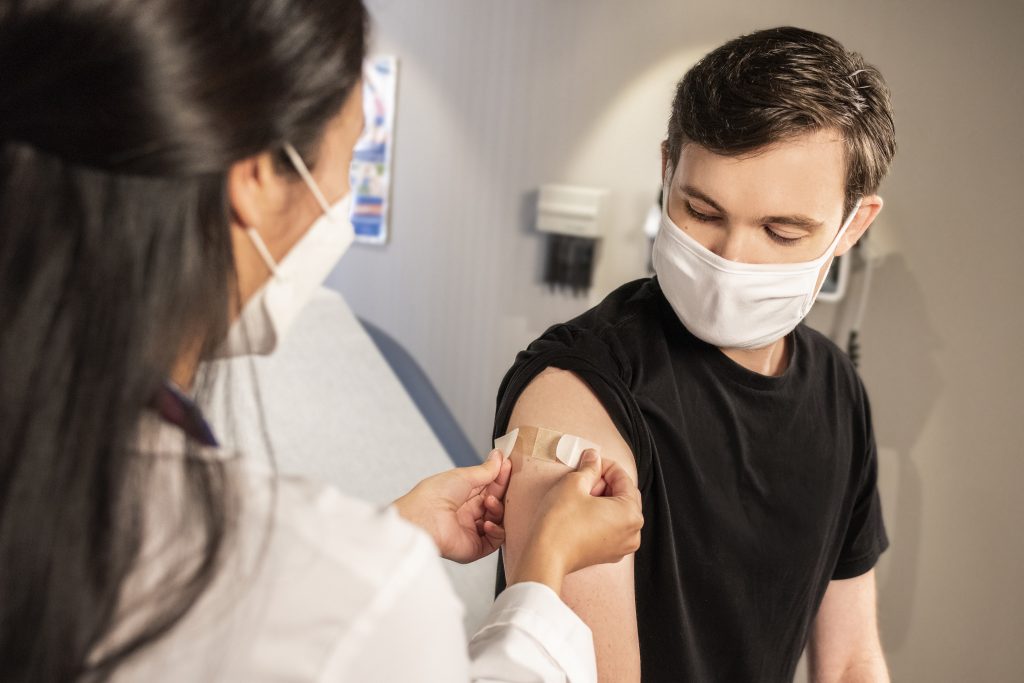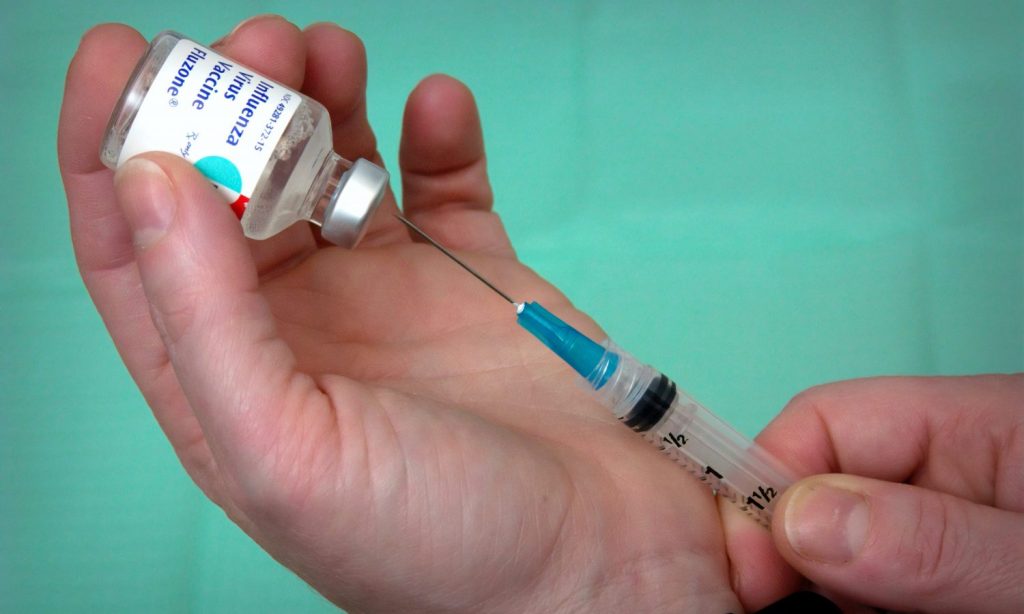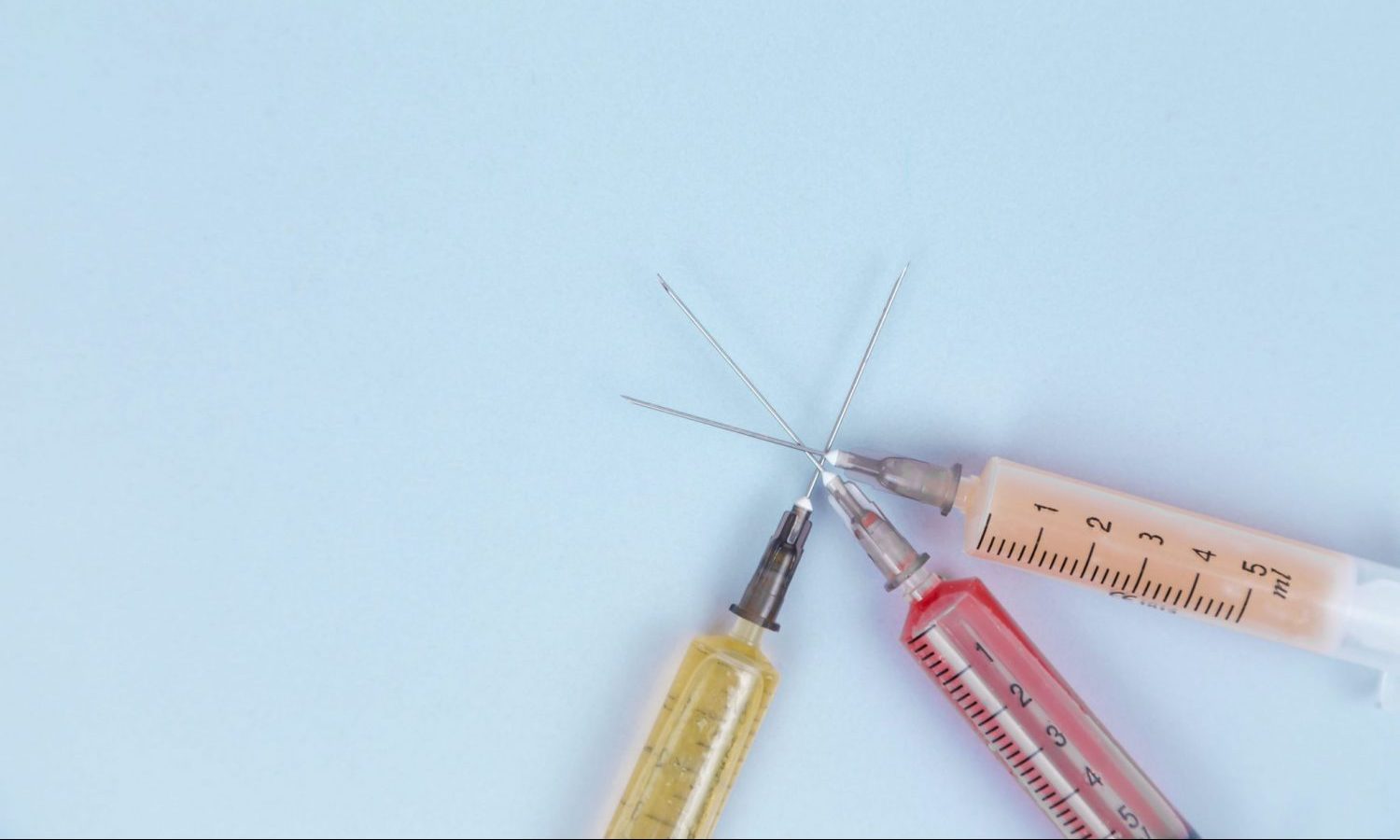Researchers believe it’s possible that adverse reactions to a mixed schedule of COVID-19 vaccines may be more prevalent in younger age groups.
Preliminary data from a U.K. clinical trial testing the benefits of mixing and matching COVID-19 vaccines showed that participants who received a mixed schedule of vaccines incurred more frequent reactions than those on standard non-mixed schedules, reports CNBC.
What Happened: The trial named the Com-Cov study led by the University of Oxford and is examining the immune responses of trial participants given a dose of the Oxford-AstraZeneca Plc (NASDAQ: AZN) vaccine followed by the Pfizer Inc (NYSE: PFE) – BioNTech SE (NASDAQ: BNTX) shot and vice versa.

The study aims to evaluate the feasibility of mixing and matching COVID-19 vaccines and whether this could be a viable route to increase the flexibility of vaccination campaigns.
Some of the reactions reported among participants receiving a mixed vaccine schedule included chills, fatigue, feverishness, headache, joint pain, malaise, muscle ache, and pain at the injection site.
The adverse reactions were found to be short-lived, and there were no other safety concerns.
The data was recorded among participants aged 50-years and above. Researchers of the study believe it’s possible that adverse reactions to a mixed schedule of COVID-19 vaccines may be more prevalent in younger age groups.
RELATED: Are Employers Allowed To Issue COVID-19 Vaccine Mandates For Employees?
Trial Results: In the Lancet international medical journal, researchers of the trial reported that when given at a four-week interval, both of the alternating vaccine schedules of the Oxford-AstraZeneca vaccine and the Pfizer-BioNTech vaccine induced more frequent reactions following the second dose than the standard non-mixed schedules.
“The results from this study suggest that mixed dose schedules could result in an increase in work absences the day after immunization, and this is important to consider when planning immunization of health care workers,” he added.
RELATED: What To Do If You Missed Your Second COVID-19 Shot
Matthew Snape, the trial’s chief investigator, said it was important to underline the fact that there were no safety concerns, adding it remained unclear whether the immune response will be affected.

“We hope to report these data in the coming months. In the meantime, we have adapted the ongoing study to assess whether early and regular use of paracetamol reduces the frequency of these reactions,” Snape said.
The trial initially recruited 830 volunteers aged 50 and above.
In April, researchers expanded the program to include the Moderna Inc (NASDAQ: MRNA) and Novavax Inc (NASDAQ: NVAX) COVID-19 vaccines in a new study, dubbed Com-COV2. It added a further 1,050 volunteers to the program.
Price Action: Shares of MRNA are trading 0.37% lower at $152.11, BNTX share is down 3.05% at $180.52, PFE stock is +1.36% at $40.23 on the last check Thursday.
This article originally appeared on Benzinga and has been reposted with permission.


